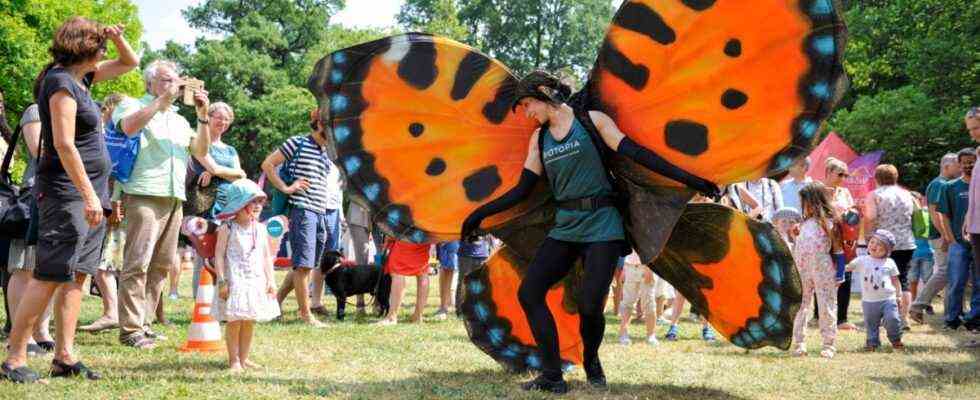The need for an intelligible communication of scientific knowledge has never been so obvious to everyone as it is today. The failure on this point has hardly ever been so badly avenged. As far as climate catastrophe and species extinction are concerned, the effects may still build up; as far as the corona crisis is concerned, they are obvious. People die of Covid-19 that could have been saved from it. That’s what knowledgeable scientists say. The fact that the doubts about it are still not dispelled – with empathy towards the doubters, as one learns in every basic psychology course, instead of insulting them as idiots – proves to be fatal. For individuals as well as for the entire society, which is divided on several levels.
In Bavaria there is a state project that promotes low-threshold science communication: Biotopia. Biotopia is to become a science network with an attached museum and event location. Everyone – from children to politicians and business leaders – should find information, advice and contacts there. Even if the opening at the location next to the Nymphenburg Palace was delayed further and further before the pandemic due to all sorts of local squabbles and local political hiccups – now 2028 is planned – the founding team is already working. Visible since last year in the small Biotopia Lab in the Botanical Garden and, due to the pandemic, online.
For Biotopia, the General Director of the Bavarian State Natural Science Collections and Director of the Munich State Zoological Collection, Gerhard Haszprunar, will give a free online lecture on vaccination and the associated technical terms this Wednesday, December 1st, 6 p.m. Unfortunately, they are “misleading at first glance and often lead to erroneous conclusions,” says Haszprunar. For example, an “antigen” is not a “counter-gene”, as the name suggests. Rather, it is “a surface protein (i.e. a protein molecule) that generates antibodies via the body’s own immune system”.
Ignorance leads to fears. “It is therefore necessary, especially in times of crisis, to take this fear away from people without any previous scientific training,” says Haszprunar. Biotopia stands in the tradition and further development of natural history museums. And these “in themselves have a great potential for trust in the population – we should and must use that, and I try to implement this with my lecture. I hope to be able to convey heart, brain and hand – that is, action.”
Gerhard Haszprunar, General Director of the Bavarian State Natural Science Collections.
(Photo: Toni Heigl)
Haszprunar believes that science communication is still somewhat ridiculed and devalued in the German scientific world, unlike in the American world, for example. Michael John Gorman, the founding director of Biotopia, sees it similarly: “It is essential that we rethink the practices of science communication in order to build a bridge between the rapid developments in science and society. Otherwise, democracy will not work well in the future the economic development of the country. “
On Thursday, December 2nd, 7 p.m., Biotopia is already offering the next digital one Event on Artificial Intelligence (AI) in Healthcare. Biotopia is working together with the Helmholtz Zentrum München for this evening. This center for health and the environment is located in Neuherberg and is a member of the Helmholtz Association of German Research Centers. The Munich scientific director Matthias Tschöp is one of the experts who will speak in this context.
This event is again part of the Hi! A – festivals for art and research in Bavaria. The English pronounced “Hi!” should be an invitation to curiosity or to your own creative thinking, and the “A” could be read as “Art”, “Artificial” or “Agenda”. The festival takes place in many different locations in the Free State. Nine central art and science institutions are involved in Hi! A, including the art and music colleges in Munich, Nuremberg and Würzburg and the Bavarian Research Association ForInter. The AI discussion will take place in English, but there will also be simultaneous translation into German.

